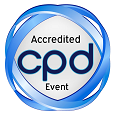
Stephen Holroyd
Fonterra Research and Development Centre
New Zealand
Title: Non-targeted methods for detection of food adulteration
Biography
Biography: Stephen Holroyd
Abstract
Food fraud costs the global industry several billion dollars every year, negatively affecting public confidence in food producers and regulators, and can result in unfortunate public health consequences. The use of non-targeted analytical methods to detect and deter adulteration in food ingredients has gained recent interest because of their potential ability to detect new unexpected adulterants that may enter supply chains. A multinational collaborative team led by a US Pharmacopeia expert panel is researching and developing a tool-box of non-targeted analytical methods and supporting reference materials for detecting adulteration in milk ingredients. This presentation will give an update on the outcomes to date of this collaborative effort, including studies conducted to evaluate and develop NIR, Raman, NMR, MALDI‒TOF‒MS, UPLC and wet-chemistry technologies. An update on the advancement of a US Pharmacopeial Convention Guidance on how to develop and validate non-targeted methods will also be provided, with a focus on clear use of terminology and a defined chain of logic for method validation. Lastly, the presentation will highlight the challenges ahead to advance the development and widespread utility of non-targeted methods.

